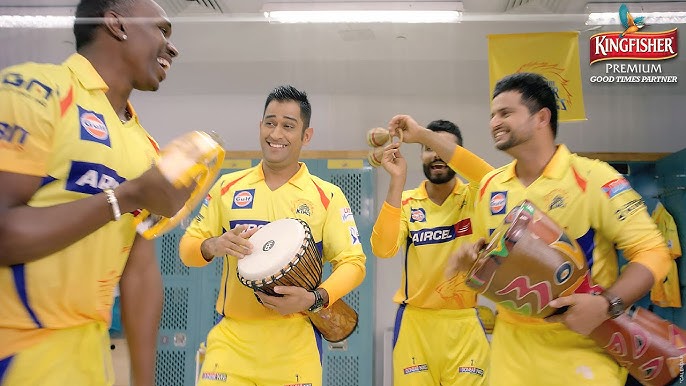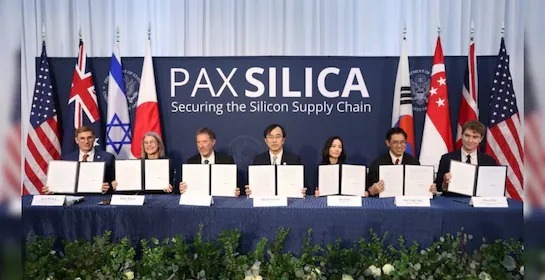B. Bhattacharya and P. Mandal, JJ.@mdashSince the employer appeared in the proceeding before the learned Commissioner, but ultimately, did not contest, in exercise of our power conferred under Order 41, Rule 14 of the Code of Civil Procedure, we dispense with the service of notice of appeal upon the employer.
2. Instead of disposal of the application for stay, we propose to hear out the appeal itself by treating it as on day''s list as a pure question of law arises for determination in this appeal.
3. This appeal is at the instance of the insurance company and is directed against an award dated 18.4.2008 passed by the learned Commissioner, Workmen''s Compensation, Third Court, West Bengal in Claim Case No. 80 of 2001 thereby awarding a sum of Rs. 2,29,635 as compensation for the death of the workman by directing the insurance company to pay the said amount within 60 days from the date of passing of such award with the condition that in default of deposit of such amount within the said period, the award would carry simple interest at the rate of 12 per cent per annum from the date of accident till the date of realization.
4. Being dissatisfied, the insurance company has come up with the present appeal.
5. At the same time, the claimants/respondents have also filed a cross-objection, being COT No. 52 of 2009, in which the claimants have prayed for grant of interest in terms of Section 4-A of the Workmen''s Compensation Act, even if the insurance company deposited the amount within 60 days from the date of the award. Since the original cross-objection is not on record, the copy of the same filed today by Mr. Mandal be treated as original, so long the original is not found out. It is needless to mention that the copy of cross-objection has already been served upon Mr. Singh, the learned advocate appearing on behalf of the appellant.
6. Mr. R. Singh, the learned advocate appearing on behalf of the appellant, has made twofold submissions in support of this appeal.
7. The first contention raised by Mr. R. Singh in support of this appeal is that the insurance company in the facts of the present case is not liable to pay the amount because the cheque issued by the employer for insurance was dishonoured and subsequently, no further amount either in cash or in cheque was paid by the employer.
8. To appreciate the question raised by Mr. Singh, it will be profitable to refer to >the following list of dates:
(a) 21.8.2000: Cheque issued by the employer for renewal of the insurance;
(b) 23.8.2000: Cover note of policy issued pointing out that the insurance was valid till 22.8.2001;
(c) 31.8.2000: Accident occurred;
(d) 31.8.2000: Bank informed the insurance company that sufficient money was not there in the'' account of employer as a result the cheque was dishonoured.
(e) 5.9.2000: Insurance company cancelled the policy by writing a letter to the employer from the very inception and communicated the fact to the employer;
9. On the basis of the aforesaid admitted position, Mr. Singh contends that his clients have no liability to honour the agreement of insurance as the consideration for such agreement was not paid to his clients and as such, the same was without any consideration and was void.
10. Mr. Mandal, the learned advocate appearing on behalf of the claimant/respondent, however, opposes the aforesaid contentions advanced by Mr. Singh and contends that even if the cheque issued by the employer was dishonoured, the insurance company having issued the cover note for the insurance w.e.f. 23.8.2000 and valid up to 22.8.2001, on the date of the accident, namely, 31.8.2000, there was a valid insurance inasmuch as the insurance was formally cancelled by the insurance company only on 5.9.2000.
11. In support of such contention, Mr. Mandal relies upon the following decisions of the Supreme Court:
(a)
(b)
(c)
(d)
12. Mr. R. Singh, the learned advocate appearing on behalf of the appellant, however, wanted to distinguish those decisions by pointing out that in all those decisions, after the cheque was dishonoured, money was subsequently paid by the insured to the insurer, whereas in this case, even after communication of the fact that the cheque had been dishonoured and the agreement of insurance had been cancelled, the employer did not care to renew the said insurance even from the subsequent date.
13. The aforesaid fact, Mr. R. Singh contends, makes the present case distinguishable from those decisions relied upon by Mr. Mandal.
14. After hearing the learned Counsel appearing for the parties and after going through those decisions, referred to by Mr. Mandal, we find that in the three-Judge Bench in the case of
15. The same view has been followed in the subsequent cases and in the case of
16. Therefore, the long and short of the principles laid down by the Supreme Court in all those decisions is that if the insurance company at its risk issues a cover note, which is equivalent to the issue of policy without ascertaining whether the cheque itself taken from the insured as a consideration of insurance would be ultimately honoured or not, it would be its liability to make payment of compensation, if any accident occurs before insurance company communicates its decision of cancellation of the policy to the insured.
17. In this case, we have already pointed out that the insurance policy was valid from 23.8.2000, the accident had occurred on 31.8.2000 and the insurance company communicated its decision of cancellation of policy by its letter dated 5.9.2001. Although in the said letter, the insurance company made it clear that policy stood terminated from the very inception, such condition is not binding upon the victim or his heirs and legal representatives.
18. We, therefore, find no substance in the first contention of Mr. Singh.
19. The other point raised by Mr. Singh is that while assessing the compensation, the learned Commissioner totally overlooked the fact that under the provisions of the Workmen''s Compensation Act, the compensation should be calculated on the basis of the maximum earning limit of Rs. 2,000, whereas in this case, the assessed amount was calculated based on the monthly income of Rs. 3,000.
20. Mr. Mandal, the learned advocate appearing on behalf of the claimant/respondent, however, fairly concedes that it was a mistake on the part of the learned Commissioner in calculating the amount of compensation on the above basis.
21. On the basis of the monthly income of Rs. 2,000 and after taking into consideration the age of the victim, the total amount will be Rs. 1,53,090 in accordance with the provisions of Workmen''s Compensation Act.
22. We, therefore, allow the appeal by reducing the amount assessed by the learned Tribunal to Rs. 1,53,090.
23. So far as the cross-objection is concerned, we find substance in the contention of Mr. Mandal, learned advocate appearing on behalf of the claimant/respondent that in view of the provisions contained in Section 4-A of the Workmen''s Compensation Act, there is no scope of imposition of interest by giving direction upon the insurance company to pay the awarded sum within the specified period and making a default clause on payment of interest. As the provision of Section 4-A of the Act stands, the interest at the rate of 12 per cent per annum on the awarded sum is payable from the expiry of one month from the date of accident till the actual deposit of the amount irrespective of the fact whether the insurance company or the employer had complied with the direction for deposit of the amount within the time stipulated therein.
24. We, therefore, hold that in this case, the claimant/respondent/cross-objector is entitled to interest at the rate of 12 per cent per annum from the expiry of one month from the date of accident (30.9.2000) till the deposit of the amount by the insurance company before the learned Commissioner.
25. Both the appeal and cross-objection are thus being disposed of by reducing the awarded sum to Rs. 1,53,090, however, with interest at the rate of 12 per cent per annum from 30.9.2000 till the deposit of the amount. Since the appellant has already deposited the awarded amount impugned in this appeal before the learned Commissioner, it is needless to mention that the running of interest on the said amount will stop running from the date of deposit of the amount and interest will be payable on the balance amount at the aforesaid rate till the actual deposit of the amount.
26. The insurance company is directed to deposit the balance amount within a month from today. It is needless to mention that the insurance company will have right to recover the amount from the employer, who did not contest before the learned Commissioner in spite of service. The appellant is at liberty to realize the amount awarded by this order from the employer in accordance with law as laid down by the Supreme Court in case of
27. The Commissioner is directed to release the amount to the appellant within a month from the date of communication of this order.
28. In view of disposal of the appeals, the connected application has become infructuous and the same is, thus, disposed of.
29. Xerox certified copy of this order, if applied for, be given to the learned Counsel appearing for the parties within a week from the date of filing of the application.

